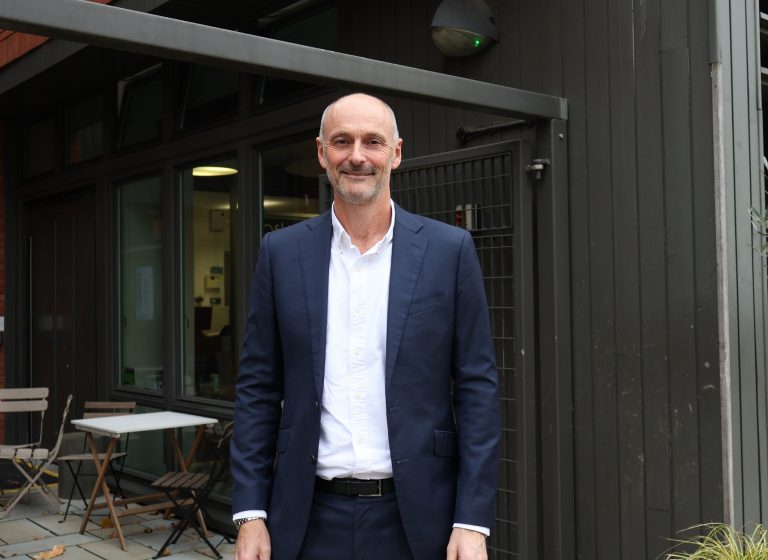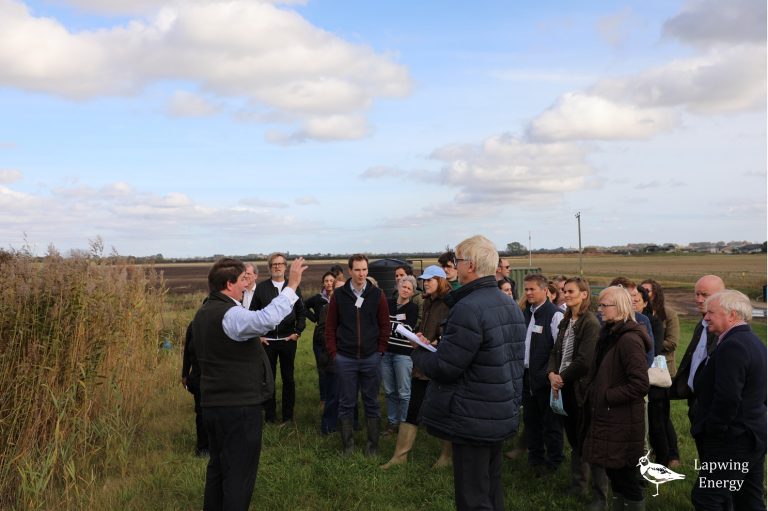Vistry Group to deliver 475 mixed-tenure homes in Hinckley, Leicestershire
Coalville company introduces UK’s first carbon capture to concrete production
Rutland Hall Hotel welcomes Sunil Kanjanghat SJS as new Director GM
Bank of England still too cautious in cutting rates, says IEA Economics Fellow
Lincs & Notts Air Ambulance completes 30,000th mission

G-LNCC
Environment Agency water company inspections across the Midlands set to increase as new staff arrive in post
Midland Wealth Solutions Relocates To Sadler Bridge Studios
Nottinghamshire businesswoman named Black Businessperson of the Year
Lincolnshire eco waste shop supporting UK’s ambitions
Ahead of COP 29 next week, The Green Life Pantry in Market Rasen, Lincolnshire, has taken measures to make sure it is one of the small businesses helping to drive progress in the UK’s journey to Net Zero.
The zero waste eco store, which has been running since 2019, provides residents with an opportunity to stock up on day-to-day items in a more eco-friendly way by using ‘bring your own’ containers or paper bags. This includes dry goods, such as baking supplies, dried fruit, loose tea and coffee beans, as well as environmentally conscious replacement products such as wash detergents, shampoo and soaps.
Jenny Salvidge, founder of The Green Life Pantry, came up with the idea as a way of helping her community become cost effective, eco-logical and less reliant on plastic. After leaving full-time-employment, Jenny sought out a Start-Up Loan of £12,000 via programme partner Norfolk & Waveney Enterprise Services to help launch the business.
Jenny Salvidge, founder of The Green Life Pantry: “The Start Up Loan was pivotal in helping me to launch The Green Life Pantry and in turn, allowing me to support a community of eco-conscious people throughout Lincolnshire.
“I would certainly encourage other businesses to consider what steps they can take to become more sustainable, no matter how small they may be.”
Richard Bearman, Managing Director, Small Business Lending at the British Business Bank said: “We are immensely proud to support the entrepreneurial spirit within communities that traditionally face barriers to financing. It is our firm belief that by providing access to financing, we are not only fostering innovation but also empowering individuals to create sustainable enterprises that contribute positively to our economy and society.
The Green Life Pantry exemplifies our commitment to supporting sustainability-focused businesses. Jenny has now established a thriving, eco-conscious business, demonstrating the transformative impact of the Start Up Loans programme.”
Brackley Property Developments unveils new £6.25m light industrial scheme in Leicester
Leicester Business Festival 2024 officially launches
The Leicester Business Festival (LBF) 2024 officially kicked off on Monday, November 4, celebrating its 10 year milestone and the region’s creative and collaborative business community.
The opening event was held at the brand new Blackbird Industrial Park, situated on the site of a former housing depot on Blackbird Road. This state-of-the-art development features four buildings that offer over 30,000 square feet of light industrial workspace across 21 units, designed for local start-ups and growing businesses.
With a strong emphasis on sustainability, all the buildings include low carbon, energy-efficient features such as roof-mounted solar panels, excellent insulation, and smart lighting, along with electric vehicle charging stations and secure bicycle storage. The units will be available for lease starting in winter 2024, ranging in size from 750 to 2,500 square feet.
The festival’s opening highlighted Leicester’s recognition as the fifth most creative city in the UK. City Mayor Sir Peter Soulsby underscored the importance of the festival and shared exciting upcoming initiatives, including a creative industry strategy launching on November 15 during the festival and exposed ambitious redevelopment plans for the city centre, such as a £22 million upgrade of the railway station and enhancements to the Leicester Waterside area.
Rajiv Popat, ITV news reporter, hosted the event, bringing together local businesses, entrepreneurs and industry leaders to showcase innovation, creativity and share insights. During the event, Rajiv interviewed Milan Gosai from Paani Bottles, a Leicester-based company that produces handcrafted copper water bottles. Launched during the COVID-19 pandemic, Paani Bottles combines traditional Ayurvedic practices with modern health benefits, such as improved digestion and antibacterial properties. Each bottle is made from over 99% pure copper, supports local artisans, and helps reduce plastic waste, appealing to customers who value authentic and sustainable products.
Nottingham Venues’ commitment to people recognised with award win
Connexin completes first stage of significant Project Gigabit contract
Workplace Wellbeing Timebomb – 83% of professionals have experienced poor mental health at work
East Midlands skills champion reaches national final
Farming industry feels the pain
- First, it is only based on APR claims and takes no account of the farm’s machinery, livestock, working capital or other business assets, including diversified business activities supporting the farm and the rural economy. That figure misses half the picture and so understates the effects of the change.
- Second, it is not an assessment of farms but of individual ownerships of agricultural land. The average value of £486,000 might generally be just 50 acres but nearer 20 in some areas. Some will be small intense farms or family members’ land used by the family farm, but more will be lifestyle units and stray fields let out for grazing round a house – both likely with wealthier non-farming owners. The data does not record farms when, on DEFRA data, the average cereals farm would need four owners to be out of tax on its farming activity.
Senior Funeral Director appointed to lead all-female team
New study reveals the features that make a company most attractive for hackers
Reverse coal on display at climate SAFE event
Nottingham is 7th largest coworking market in UK
- dedicated desks are £211 / month – on par with the national median of £210;
- open workspaces are £158 / month – on par with the national median of £160;
- virtual offices are £49 / month – on par with the national median of £50;
- meeting rooms are £18 / hour – below the national median of £25.






















